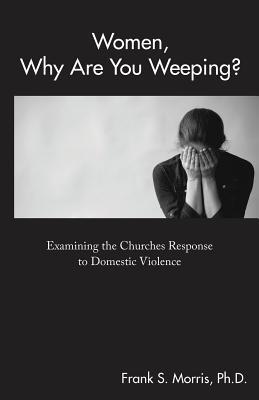Christian husbands are cursing, choking, punching, beating, kicking, and in some instances, using weapons to assault their wives. Women, Why Are You Weeping? describes how trust is broken and collusive alliances are formed whenever the church chooses to not get involved in family violence issues. When juxtaposed to Mary Magdalene's traumatic discovery at the tomb that caused her to cry-"they have taken away my Lord, and I do not know where they have laid him"-this writing offers insight into ways Christ is poorly embodied when he is portrayed as complicitous in our unjust acts. Women, Why Are You Weeping? is an appropriate inquiry into the depth of disappointments our fellow heirs of the grace of life undergo. This question only appears twice in Scripture. In both instances, it is posed by divine beings looking into the affairs of mankind. Policy and practical change will occur when the church views the violence as a concern of all God's people, particularly clergy. If the unredeemed can be there to listen to and comfort victims and have invested the money and time needed to give the victim/survivors the encouragement and hope they so desperately seek, how can the redeemed do less?

Women, Why Are You Weeping?: Examining the Churches Response to Domestic Violence
Christian husbands are cursing, choking, punching, beating, kicking, and in some instances, using weapons to assault their wives. Women, Why Are You Weeping? describes how trust is broken and collusive alliances are formed whenever the church chooses to not get involved in family violence issues. When juxtaposed to Mary Magdalene's traumatic discovery at the tomb that caused her to cry-"they have taken away my Lord, and I do not know where they have laid him"-this writing offers insight into ways Christ is poorly embodied when he is portrayed as complicitous in our unjust acts. Women, Why Are You Weeping? is an appropriate inquiry into the depth of disappointments our fellow heirs of the grace of life undergo. This question only appears twice in Scripture. In both instances, it is posed by divine beings looking into the affairs of mankind. Policy and practical change will occur when the church views the violence as a concern of all God's people, particularly clergy. If the unredeemed can be there to listen to and comfort victims and have invested the money and time needed to give the victim/survivors the encouragement and hope they so desperately seek, how can the redeemed do less?